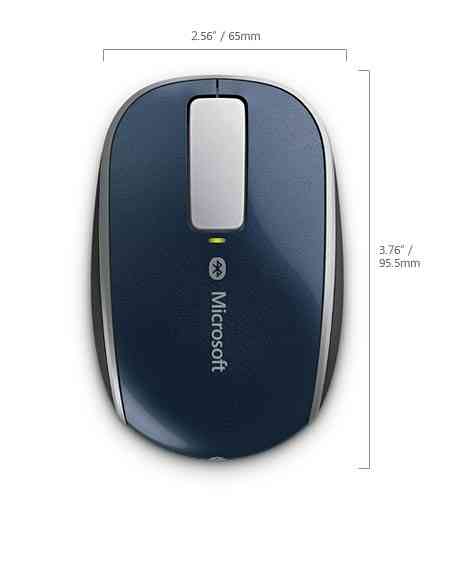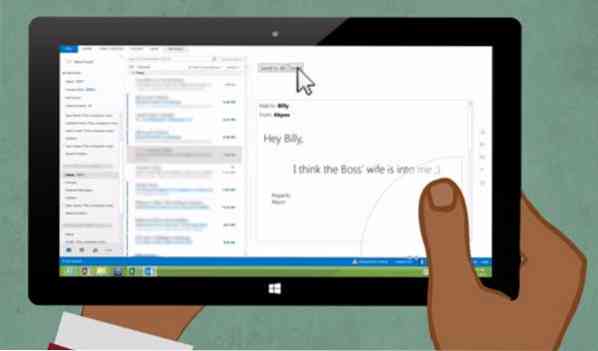Introduction
Operating Systems manage the hardware and software of computers. They include Microsoft Windows, MacOS, Linux, Android, Unix and many others. While the most dominant desktop operating system is Microsoft Windows, Linux open source nature makes it a viable option for usability in numerous platforms. Android, developed by Google, takes the lion's share among the mobile sector of tablets and smartphones using Linux Kernel.
Two types of operating systems exist; a single-tasking and a multi-tasking OS. Single-tasking OS run one program at a time while Multi-tasking OS run multiple programs simultaneously.
Multi-tasking operating systems include Unix and Linux (a Unix-like OS) as examples. Before the advent of Linux and the rise of Windows operating system, Unix dominated the computing world.
The Unix operating system has a variety of versions; HP-UX, AIX, BSD among others. Many may consider Linux as a clone of the Unix operating system, maybe because they happen to share some common features in their outlook. However, this is not the case as Linux and Unix are separate entities even though Linux was released much later than Unix.
The Single Unix Specification is a group term given to standards of computer operating systems that comply and qualify for using the Unix trademark. Any system that claims to be Unix has to be certified, if not it is only regarded as a mere Unix-like system.
Definition of Unix
Unix can be used as a term explaining three scenarios:
First and foremost, it refers to the original OS designed by AT&T Bell Labs and other operating systems derived from this OS.
Secondly, as UNIX, a trademark managed by the open group that developed a set of guides for operating systems called Single Unix Specification. Only operating systems that meet these standards can carry the name “Unix” and developers of an OS have to pay for the license and royalties.
Lastly, it can be used to refer to all systems that are registered with the “Unix” name as they comply with the standards of the trademark.
Therefore, for an Operating System to be called or rather classified as Unix, it must satisfy any of the above definitions. If not, it is entirely not one and may just be a Unix-like OS.
When talking about UNIX with regards to the second explanation, the operating systems here derive from the initial AT&T Unix. It is written in C and Assembly programming languages. The original work was intended for functioning within the Bell System but was later licensed to outside groups that comprised academic and commercial variants from vendors.
The systems in Unix have a common modular design referred to as the Unix philosophy; regarding the set of simple tools the operating system offers that are tasked with a limited, well-defined role.
Over the years, various Unix-like operating systems have been developed. Of these, Linux has emerged as the most popular displacing SUS-certified Unix.
What is the Linux operating system?
On the other hand, Linux, which was developed by Linus Torvalds, is a group of operating systems that are open-source hence free to be modified to suit end users' needs. It was released in the early 1990s with the main target being personal computers but has spread to more platforms beating other operating systems.
Linux has been termed as Unix-like, a term which means an operating system that resembles a Unix system. It may not qualify as one or be certified to any particular version of the Single Unix Specification.
Linux is also a kernel designed by Torvalds. It has proven to be flexible over the years and has a variety of applications. Android, designed on top of the Linux Kernel is the most widely used mobile operating system for mobile devices and even Android Televisions are on the rise.
Some versions of Linux, referred to as Linux distributions include Ubuntu, OpenSuse, Redhat, Solaris among others. Those of Unix are AIS, HP-UX, BSD, Iris. In contrast, Unix has the least share of versions.
Difference between Linux and Unix
It would be wrong to say that Linux is Unix because of the following distinctive features that aim at ruling out the two as being one thing.
- Flexibility and compatibility: Linux is flexible and compatible with most hardware. It can be installed and run on most platforms. These include mobile phones, tablets and game consoles. However, Unix can only work on specialized hardware and specific CPU processors. It is not compatible like the Linux operating system and its installation requires strict and procedural hardware machinery.
- Cost: Linux distributions are free, there are no costs incurred on downloading and can be distributed via different media. The few priced Linux distros are affordable. In the case of server versions, institutions make payment to distributors for a support policy but not for the software itself. On the other hand, Unix is not free at all. Sellers of various Unix flavors offer them at varying rates. Commercially, Unix is often custom written for a particular system. Thus the original cost is high.
- Availability of source code: Linux's source code is freely available while the one for Unix is not. Users can modify and make changes to the Linux system in their devices. However, selling is restricted. This is not the case for Unix; its source code is not available since it is not a freeware.
- Portability: The Unix system is not as portable as Linux is. Linux is extremely portable and can run on a variety of storage media and handheld devices.
- Command line and GUI: When dealing with the Linux operating system we associate it with a minimal graphical user interface and a command line interface mostly used. Unix only uses the command line interface, while the development of a graphical user interface is ongoing.
- File systems: Linux has the ability of supporting a great set of file systems when compared to Unix. During installation, the cost incurred is relatively low.
- Applications: The Linux Operating System has a variety of users; from home users, developers to computer enthusiasts. Unix has scarce users, mainly designed for mainframes, servers, and workstations. Only the OS X version targeted everyone in its initial design.
- Shell: The Linux system uses the Bourne Again Shell (BASH) as its default shell and can support multiple command interpreters. Unix was originally associated with the Bourne shell but later became compatible with numerous others such as Korn and C.
- Security: Linux has a fast and efficient response rate to bugs and threats. Since it is an open OS, any user can report a bug which is fixed within a short time span. In Unix, the user has to be patient to acquire the proper bug fixing patch.
Similarities between Linux and Unix operating systems
Even though these two are distinct in so many ways, there are certain features they share; from functionality to design. This is not to say they are at all similar but a mere comparison of why some users may confuse the two.
Both the Linux and Unix operating systems can multitask and operate on a variety of platforms. Moreover, both of these employ a monolithic kernel in their functioning. Monolithic kernels are characterized by a design where the whole operating system is working in the kernel space, and the kernel can load and unload executable modules while the device is running.
Another similarity is that they are modular; a feature in the two operating system can be removed and replaced without the need of rebooting. Others like the Loadable Kernel Module can be added in the Linux while the system is running.
Developments in the Unix OS are making it capable of using not the GUI in addition to the already present command line tool. This feature was present in Linux only but is common for both of them in later versions of Unix.
Conclusion
Linux cannot be said to be Unix mainly because it was written from scratch. It does not have any original Unix code within. Looking at the two OS, you may not notice much of a difference as Linux was designed to function just like Unix, but it does not contain any of its code. Moreover, it lacks a Unix Certification to satisfy the conditions of being called a Unix OS as aforementioned.
When studying the two, we should note that Linux has gained popularity in computer hardware and software, gaming, tablets, mainframes. The latter, on the hand, has been commonly used for internet servers, workstations and personal computers of Solaris, Intel and HP. Of the two, Linux is more popular among users.
In addition to all these, there exist Linux-based Unix like set-ups that do not employ many GNU tools while there are also operating systems that make use of the Linux kernel but do not resemble the Unix system. For instance, Android has a Linux kernel but is not in any way a Unix device. Distinguishing this two becomes difficult mainly because of the flexibility of Linux; it can be integrated into different systems whether Unix-like or not.
Additional Info and Sources
https://www.unix.org/what_is_unix.html
https://en.m.wikipedia.org/wiki/Operating_system
https://beebom.com/unix-vs-linux-what-is-the-difference/
https://www.techworms.net/2016/11/difference-linux-unix-operating-systems.html
https://www.quora.com/What-are-the-similarities-and-differences-between-UNIX-and-Linux
 Phenquestions
Phenquestions



